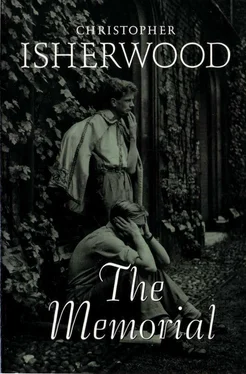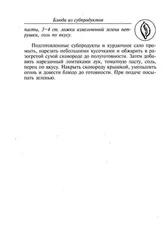Balefanio - tmp0
Здесь есть возможность читать онлайн «Balefanio - tmp0» весь текст электронной книги совершенно бесплатно (целиком полную версию без сокращений). В некоторых случаях можно слушать аудио, скачать через торрент в формате fb2 и присутствует краткое содержание. Жанр: Старинная литература, на английском языке. Описание произведения, (предисловие) а так же отзывы посетителей доступны на портале библиотеки ЛибКат.
- Название:tmp0
- Автор:
- Жанр:
- Год:неизвестен
- ISBN:нет данных
- Рейтинг книги:4 / 5. Голосов: 1
-
Избранное:Добавить в избранное
- Отзывы:
-
Ваша оценка:
- 80
- 1
- 2
- 3
- 4
- 5
tmp0: краткое содержание, описание и аннотация
Предлагаем к чтению аннотацию, описание, краткое содержание или предисловие (зависит от того, что написал сам автор книги «tmp0»). Если вы не нашли необходимую информацию о книге — напишите в комментариях, мы постараемся отыскать её.
tmp0 — читать онлайн бесплатно полную книгу (весь текст) целиком
Ниже представлен текст книги, разбитый по страницам. Система сохранения места последней прочитанной страницы, позволяет с удобством читать онлайн бесплатно книгу «tmp0», без необходимости каждый раз заново искать на чём Вы остановились. Поставьте закладку, и сможете в любой момент перейти на страницу, на которой закончили чтение.
Интервал:
Закладка:
tied him to a chair—so they said—and left him to cool down. They seemed fond of him. Even Maurice had been slightly shocked at the way they stole money from his desk. They were hanging about the place all day long—except when they came to Gatesley—working in the mill when they felt like it—"learning the processes," according to custom, before becoming partners, but more often being hunted from one floor to another by exasperated overseers—rigging up machinery of all kinds in their private workshop, amusing themselves with revolver practice in their bedroom, trying to learn the saxophone or the mandolin, riding their huge motor-bikes all over the town and being summoned for speeding or not having silencers—ten times worse when Maurice was with them; the corrupton was mutual. The first Mrs. Ramsbotham had died years ago. Mary had heard that she was a quiet woman, refined and gentle, the daughter of a clergyman.
And now Mary had to talk to Mrs. Cooper and Miss Townend and Mrs. Higginbottom. They wanted her to help again this year with the Girls' School Outing.
"We thought of taking them by chara to Castleton to see the Caves," said Mrs Cooper.
Mary loathed the Caves. She once bumped her head nearly silly in the Peak Cavern. In the Speedwell Mine Maurice had dropped a new wrist-watch Father had given him into the water. She
said that Castleton would be splendid, and reflected that she needn't go in. Some of the smaller children were always frightened and had to be stopped with outside.
And then before long there'd be the teachers' picnic and then there'd be the Hockey Club Committee and the Whist Drives beginning, and soon they'd have to think of the Conservative Club dances, and so on to the Winter Sale of Work and the Turkey Fund bazaar, the Bethlehem Tableaux, the operatic show—probably Ruddigore —the School Christmas Tree, the Church Christmas Tree, and the performance of As You Like It. Oh, curse all this, thought Mary. I'd give anything to be back in London. But no, that wasn't quite sincere. The thought of all this activity and organising pleased her. She really looked forward to all of it—except, perhaps, the Whist Drives.
"I'm sure I don't know what we should do without you, Mrs. Scriven," said Miss Townend.
And Mary couldn't help being rather flattered and pleased, as she smiled at the little school-mistressy woman in pince-nez.
After all, she thought—I do get some fun out of my life.
"There aren't many from Gatesley here this morning," said Mrs. Higginbottom.
"There'd have been more if they'd held it on a Sunday," said Mrs. Cooper.
Mary agreed. And suddenly it seemed strange
to her that Mrs. Cooper should be Milly Barlow of Stone Hall Farm. Milly, who'd been the witness of all those surreptitious visits—Mary pedalling over the hills on her bicycle in time to meet Desmond when he returned to Gatesley from his hated bank-clerkship in Manchester. Desmond was the Barlows' lodger. And they must, for many weeks, have been half expecting the tremendous and thrilling scandal which finally closed his stay. Does she remember the old days? Mary wondered. Of course, she must remember. Dozens of people in Gatesley must remember. How had she ever dared to come back and live in Gatesley, the scene of all her wickedness? To tell the truth, Mary had hardly given the matter a thought. She liked Gatesley— well, for sentimental reasons, perhaps, and when she decided not to live in Chapel Bridge itself she'd naturally chosen it. She'd had no idea of shocking anybody. If there was gossip, she was too thick-skinned to mind that now. She'd grown a thick skin during her married life. But an outside observer, Lily, for instance, couldn't be expected to see all that. It was quite likely that Lily had been very deeply shocked at Mary's callousness. Perhaps that was why she so seldom came to call on them. She didn't want to seem to condone the offence.
Mrs. Higginbottom said that she thought the service was beautiful.
"Oh, it was beautiful," agreed Mrs. Cooper. "I
think they did everything so"—she searched for a word—"so reverently. It was beautiful."
Yes, thought Mary—she must have forgiven me long ago. When was it, I wonder? When did I suddenly become respectable? Was it after the first time I organised the Red Cross Bazaar? Or simply when it got about that I was being received again at the Hall?
"We felt so sorry for poor Mrs. Richard," said Miss Townend.
And at last Mary was touched. The sincere, cinema-goer's romantic sentimentality of this dried-up spinster, moved by the sorrows of the beautiful and blue-blooded. There was beauty in the gloating of Miss Townend over Mrs. Richard.
And she made it better by adding:
"We were so glad old Mr. Vernon was able to get here, today. We were all so very much hoping that he would."
So, after all, Lily's instinct in that wreath business had been entirely right.
And now Ram's B was helping Father into the carriage, with the aid of Kent and Mr. Hardwick and Mr. Askew. Father was allowing himself to be particularly heavy, out of swank; like a baby being naughty and even sick because there are visitors. People coming out of the churchyard paused to admire the spectacle. There he sat, and they tucked him in with the carriage rug. The people gazed at him with curiosity. Mary considered her father through their eyes. He was among the best of his sort in these parts—where Rolls-Royce cars were often to be found in the garages of quite small villas. Landowners were becoming obsolete. Father was obsolete. The vehicle he sat in was obsolete. The animal which drew it was nearly obsolete—soon perhaps to become a Zoo exhibit or an outdoor pet. Perhaps he had a certain interest on that account. He would soon not be there. His present claim on their attention was chiefly that, by a sort of accident, he happened to be not yet dead.
Conscious that Mr. Askew and Mr. Hardwick —not to mention Mrs. Cooper, Miss Townend and Mrs. Higginbottom—vaguely expected it, Mary advanced to the carriage, mounted the step with one foot, and, leaning over, kissed John on the top of the head.
He submitted quite pathically, just uttering the usual grunt of acquiescence.
"How are you, Father?" she asked.
But he merely smiled, gave another brief grunt. He wouldn't tell her.
Stepping down from the carriage, she asked Lily, who was standing ready to get in:
"How do you think Father is?"
"Oh, wonderfully well, I think," said Lily.
And it seemed to Mary that she couldn't keep out of her voice just that slightly defiant note—as much as to say: Do you think I don't take care of him?
"He wants you to come over and have lunch with us one day next week," Lily added, heightening this effect.
And at this, Mary really couldn't help smiling. As if Father could possibly have "wanted" her to come over on a special day! That, of course, was Lily's way of interpreting Father's having said: "We never see Mary nowadays." And so Lily would have decided that it should be lunch. And on that morning she'd tell Kent to bring the Master home at one o'clock sharp. Well, and why not? Mary thought. What is there funny in all that? It made her smile, nevertheless.
"Which day would you like me to come?" she asked, and immediately wished she hadn't been so unkind, because Lily flushed and her face changed with vexation like a child that has been tripped up in some slight exaggeration by a pedantic grownup person.
She answered, quite curtly:
"Oh, naturally, whichever day is best for you."
Poor Lily, thought Mary. Why am I so malicious? She remembered again how Lily had taken her hand in the middle of the service. It seemed that, after all, Lily was all candour and innocence.
Mary's smile became really friendly:
Читать дальшеИнтервал:
Закладка:
Похожие книги на «tmp0»
Представляем Вашему вниманию похожие книги на «tmp0» списком для выбора. Мы отобрали схожую по названию и смыслу литературу в надежде предоставить читателям больше вариантов отыскать новые, интересные, ещё непрочитанные произведения.
Обсуждение, отзывы о книге «tmp0» и просто собственные мнения читателей. Оставьте ваши комментарии, напишите, что Вы думаете о произведении, его смысле или главных героях. Укажите что конкретно понравилось, а что нет, и почему Вы так считаете.





